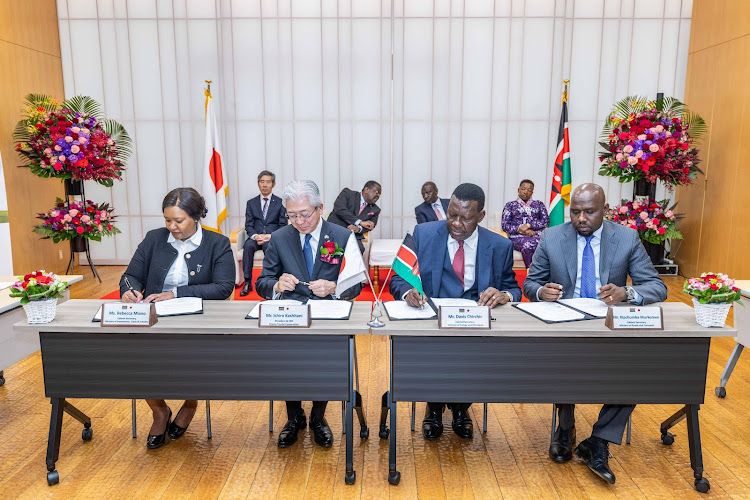Introduction
In a groundbreaking development for Kenya's automotive and renewable energy sectors, Toyota Tsusho Corporation of Japan has inked a framework agreement with the Kenyan government. The agreement, signed in Tokyo, Japan, marks a significant milestone in the collaboration between the two entities, with far-reaching implications for Kenya's industrial landscape.
Establishment of a Vehicle Manufacturing Plant
At the heart of the agreement lies Toyota's commitment to establish a state-of-the-art vehicle manufacturing plant in Kenya. With an initial investment of Kshs 800 million earmarked for the Kenya Thika vehicle manufacturers, Toyota aims to bolster the country's automotive industry and address the pressing need for locally manufactured vehicles. The signing ceremony, presided over by Kenyan President William Ruto and Toyota Tsusho Corporation President Ichiro Kashitani, underscores the strategic importance of the venture.
President Ruto emphasized the importance of achieving a balance between imported and locally manufactured vehicles, with a view to making locally produced vehicles more accessible and affordable. By ramping up production and upgrading technology, Kenya aims to meet the burgeoning demand for vehicles in the domestic market while curbing reliance on imported used cars. The move aligns with the government's broader agenda to boost local manufacturing and create employment opportunities for Kenyans.
Unlocking Kenya's Automotive Potential
The Kenyan vehicle assembly industry has long grappled with production levels that fail to meet market demand. With an average output of 12,000 manufactured cars in previous years, the sector has struggled to keep pace with the needs of consumers. Toyota's substantial investment signals a transformative shift, poised to enhance Kenya's automotive capabilities and position the country as a key player in the regional automobile market.
By leveraging Toyota's expertise and resources, Kenya aims to bridge the gap between supply and demand, fostering innovation and competitiveness in the automotive sector. The establishment of a local manufacturing plant not only promises to bolster Kenya's economy but also to elevate the country's status as a hub for automotive excellence in East Africa.
Renewable Energy Development: A Dual Commitment
Beyond vehicle manufacturing, the framework agreement encompasses a multifaceted approach to renewable energy development in Kenya. With a total investment of KSh 98 billion allocated to projects such as the Meru Wind Farm Energy, Isiolo Solar Energy, and Menengai Geothermal Plant, Toyota reaffirms its commitment to sustainability and environmental stewardship.
The inclusion of electrified vehicles, including hydrogen electric vehicles and hybrid vehicles, underscores Toyota's dedication to advancing green technology and reducing carbon emissions. By promoting the adoption of renewable energy solutions and eco-friendly transportation alternatives, the agreement signals a paradigm shift towards a more sustainable future for Kenya and beyond.
A Vision for the Future
As Kenya embarks on this transformative journey with Toyota Tsusho Corporation, the stage is set for unprecedented growth and development in the automotive and renewable energy sectors. With a focus on innovation, collaboration, and sustainability, the partnership holds the promise of a brighter tomorrow for the people of Kenya and the continent at large.
As President Ruto aptly stated, "We must embrace new opportunities and forge strategic partnerships to unlock the full potential of our nation." With Toyota's investment paving the way for progress, Kenya stands poised to realize its vision of becoming a regional powerhouse in both manufacturing and renewable energy innovation.




